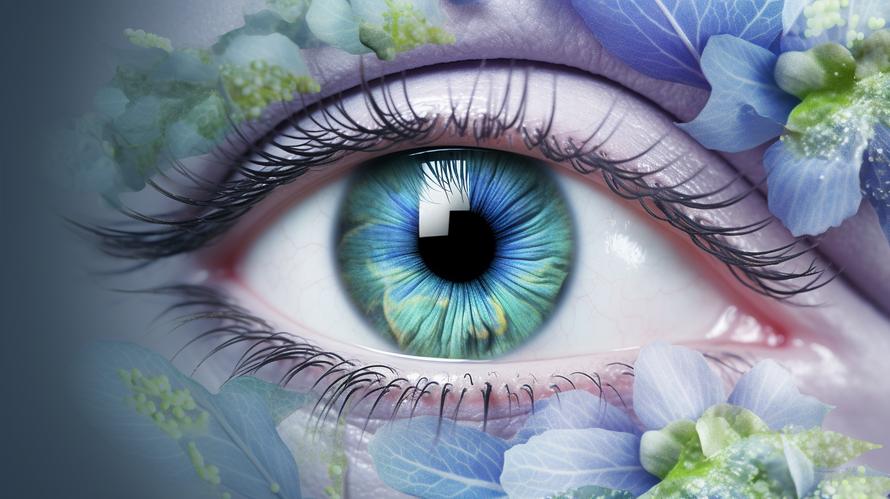What if I told you that the fight against failing eyesight isn’t found just in the glasses on your nose, but also in the food on your plate? Brace yourself; you’re about to embark on an eye-opening journey.
Let’s dive right in – in the colorful, vitamin-rich depths of the world’s oceans. There, beneath the waves, you’ll find Astaxanthin (pronounced asta-ZAN-thin) – a nutrient so powerful that it has scientists, nutritionists, and even opticians raving about its eye-protecting prowess.
Astaxanthin, a lesser-known cousin of beta-carotene, is a xanthophyll carotenoid that dazzles under the sea. It is mostly found in marine organisms like microalgae, salmon, shrimp, lobster, and some types of birds like flamingos. This makes them favorites of flamingos and wild salmon, lending them their striking pink hue. If flamingos and salmon could testify about their excellent vision, they’d surely give a nod to Astaxanthin.
Now, readers might ask why all the clamor about Astaxanthin? Isn’t Vitamin A sufficient enough?
Picture this: Tolerating free radicals in your body is like hosting a party for drunk guests; they damage everything around them. Vitamin A or beta-carotene is like your courteous security personnel who keep the unruly guests in check, preventing mayhem. However, the havoc caused by free radicals in your eyes is a tad too extreme. That’s when Astaxanthin shows up – the lead bouncer, unyielding, relentless, and infinitely more potent than Vitamin A.
Unlike Vitamin A, Astaxanthin does not convert into a toxic retinol derivative, making it super safe for regular and long-term use. More so, it can handle multiple free radicals simultaneously compared to other anti-oxidants that can deal with one free radical at a time.
Getting more technical, Astaxanthin is uniquely configured to provide robust antioxidant protection for the eyes. It effortlessly spans the bilayer membrane of cells, extending protection to both the interior (water-soluble) and exterior (fat-soluble) parts of the cell. This double protection is unmatched by any other antioxidant.
Studies suggest that Astaxanthin may improve several measures of eye health. It could enhance retinal capillary blood flow and reduce eye fatigue, blurred vision, and dry eyes. Long-term consumption could significantly delay age-related macular degeneration (AMD) and cataracts, and even alleviate the symptoms of these diseases. In a world where 1 in 3 people suffers from some form of vision impairment by the age of 65, this revelation could be a game-changer!
So how can you incorporate Astaxanthin into your diet? Eating wild salmon, while beneficial, may not provide enough Astaxanthin. Unfortunately, most Astaxanthin from salmon is lost during cooking. Furthermore, not everyone favors a seafood diet, while others suffer allergies.
Supplementation remains the best way to take advantage of this astounding nutrient. Pure Astaxanthin (now available in various supplement forms) sourced from Haematococcus pluvialis, a type of algae, is considered the best due to its high concentration and bioavailability.
While Astaxanthin is safe for most people, it’s always wise to consult with your doctor before starting any new supplement regimen, especially if you have a health condition or take other medications.
In a nutshell, Astaxanthin is paving the way for a holistic vision health approach, changing the perspective on eyesight preservation and age-related eye diseases. So, here’s to seeing the world in a better light, one plate, and one supplement at a time.
To healthier eyes and clearer vision, remember your sushi rolls and flamingo notions, but don’t forget the star called Astaxanthin! The adage of “you are what you eat” has never been more relevant. Let’s evolve it to “you see what you eat.” Bon Appétit.
To see or not to see, is not the question; to see afar and near, and side to side, without hassle, is the healthful resolution you can make today.
Remember, stepping into the sunlight without sunglasses might temporarily hamper your vision, but stepping into your nutrition without Astaxanthin might result in a lifelong compromise on your vision. Why chance such a danger?
So, whether you’re squinting to read this article, rubbing your eyes after a day of screen revelling or fear that the gift of sight may be shortened, let Astaxanthin be your watchful guardian, guiding you towards healthier, longer-lasting vision. Let the spectacle of life never fade from your sight!



